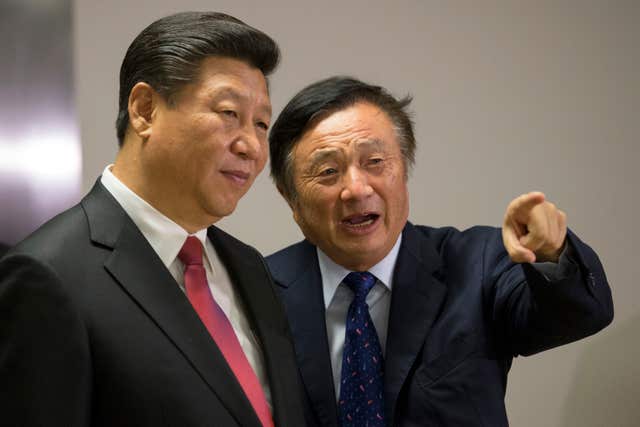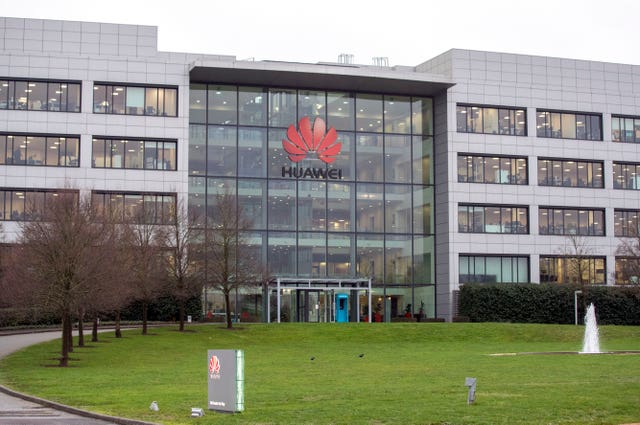Huawei and 5G: the key questions
A closer look at the controversy around the Chinese technology firm.

Ministers are due to decide on Tuesday if Chinese tech firm Huawei should be allowed a place in the UK’s 5G network infrastructure.
However, the decision is controversial, with the United States pressuring the UK to block Huawei over security fears.
Here is a closer look at the questions around Huawei and its place in Britain’s 5G networks.
– What is Huawei?
Chinese technology giant Huawei is the world’s second-biggest smartphone manufacturer and one of the world’s biggest suppliers of telecommunications equipment.
It says it is a private company “wholly owned” by its employees, but questions have been raised about the mechanics of its ownership structure.
It was founded in 1987 by Ren Zhengfei, who, before his career in industry, worked in the engineering branch of the People’s Liberation Army.

– Why is the company controversial?
Huawei has come under scrutiny over allegations of close ties to the Chinese state.
Founder Mr Zhengfei’s past links to the military have been cited as a concern, as has China’s history of state sponsorship and surveillance.
Chinese law can also compel firms to co-operate with Chinese national intelligence work, which some critics have suggested could see Beijing require Huawei to spy on people through so-called “back doors” in its telecoms equipment.
Huawei has vehemently denied the allegations of any ties with the Chinese state and says it abides by the laws of every country in which it operates.
– Why is Huawei so important to 5G?
Huawei has invested billions of pounds into research and development around 5G network infrastructure and, as a result, is now considered the industry leader in 5G technology.
It is also already part of the existing network infrastructure in a number of countries, including in the UK.
As a result, using one of Huawei’s rivals, and most likely alternatives – Ericsson or Nokia – for the building of 5G networks, is likely to cause a delay and add cost to the introduction of widespread 5G in the UK.
In contrast, none of the four largest mobile carriers in the United States use Huawei equipment in their networks.

– How have the UK’s allies approached the issue?
The UK is a part of the Five Eyes intelligence network, which also includes the United States, Canada, Australia and New Zealand.
The US has previously banned Huawei from its government networks, and last year imposed restrictions which limit Huawei’s ability to trade with US companies.
The US has publicly urged its Five Eyes allies to do the same, and Australia has also blocked Huawei from its 5G networks.
– What does Huawei say?
Huawei has always denied having ties to the Chinese government, with the company’s founder denying that Beijing has ever asked his company to help spy on its clients.
Mr Zhengfei, in an interview last year, said: “I love my country. I support the Communist Party. But I will not do anything to harm the world.”
He said Huawei had never been asked to share “improper information” about its partners by the government.
“I personally would never harm the interest of my customers, and me and my company would not answer to such requests.
“No law in China requires any company to install mandatory back doors.”
– What decision is expected from the UK?
Reports suggest the UK will allow Huawei to have a restricted role in 5G, with ministers looking to impose a cap on its market share to prevent over-reliance on its equipment.
An announcement is expected on Tuesday following a meeting of the National Security Council.





